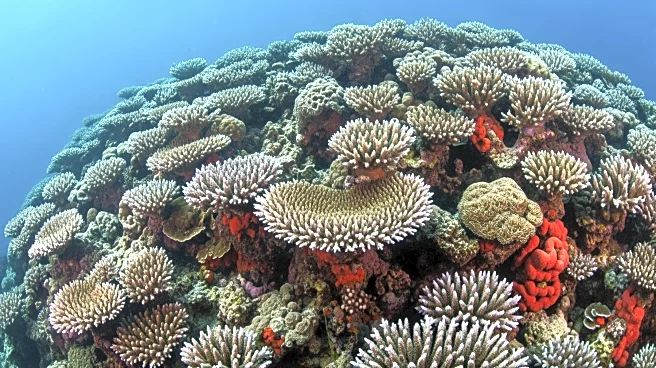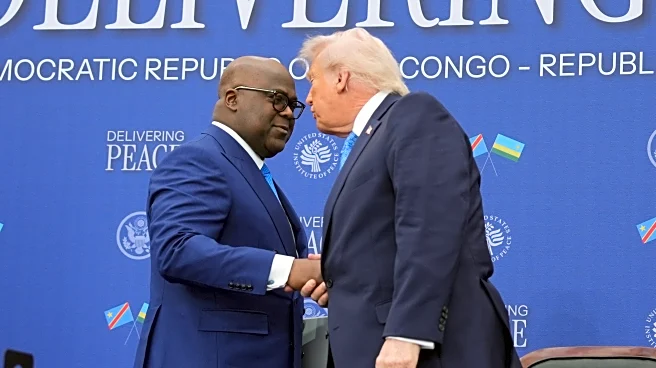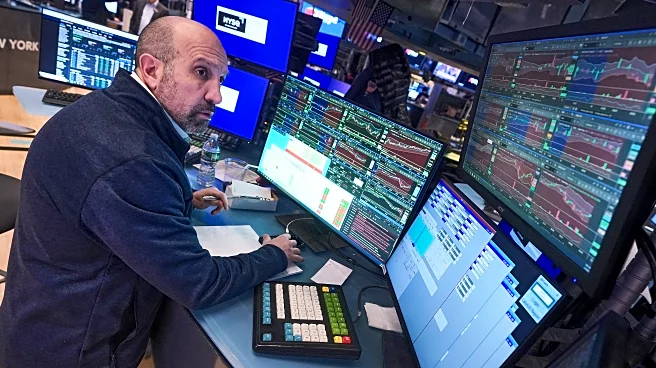What's Happening?
Kaʻiku Kaholoaʻa, a Stanford scientist originally from Molokaʻi, is conducting research on the thermal tolerance of corals to understand their resilience to climate change. The study involves exposing
coral samples to incremental heat to simulate conditions like low tide and midday heat. Kaholoaʻa and his team are grading coral samples based on their color, with scores ranging from one (healthy) to five (bleached). The research aims to identify corals that can withstand higher temperatures, which is crucial as ocean temperatures continue to rise. Kaholoaʻa's work is focused on understanding the genetic basis of thermal tolerance, which could help predict how coral populations might adapt to changing climate conditions.
Why It's Important?
This research is significant as it addresses the urgent issue of coral bleaching, a phenomenon exacerbated by climate change. Coral reefs are vital ecosystems that support marine biodiversity and protect coastlines. Understanding the genetic factors that contribute to coral resilience can inform conservation strategies and potentially lead to the designation of marine protected areas. Such areas could serve as refuges for thermally tolerant corals, helping to preserve these ecosystems for future generations. The findings could also influence policy decisions regarding environmental protection and climate change mitigation.
What's Next?
Kaholoaʻa plans to continue his research by conducting genetic testing on coral samples from Maui and Molokaʻi to confirm theories about coral spawning and resilience. The results, expected in about two years, could provide insights into which reefs are most critical for conservation efforts. Kaholoaʻa hopes to inspire local communities to protect these areas, emphasizing the importance of community-led conservation initiatives. Additionally, he aims to serve as a role model for Native Hawaiian youth in science, encouraging them to pursue careers in marine biology and environmental science.
Beyond the Headlines
The research highlights the interconnectedness of coral reefs and the broader ecosystem, emphasizing the need for a holistic approach to conservation that includes addressing human impacts like sedimentation and overfishing. Kaholoaʻa's work also underscores the importance of cultural connections to the ocean, advocating for conservation efforts that are led by and for local communities. This approach not only protects the environment but also preserves cultural heritage and promotes sustainable practices.










